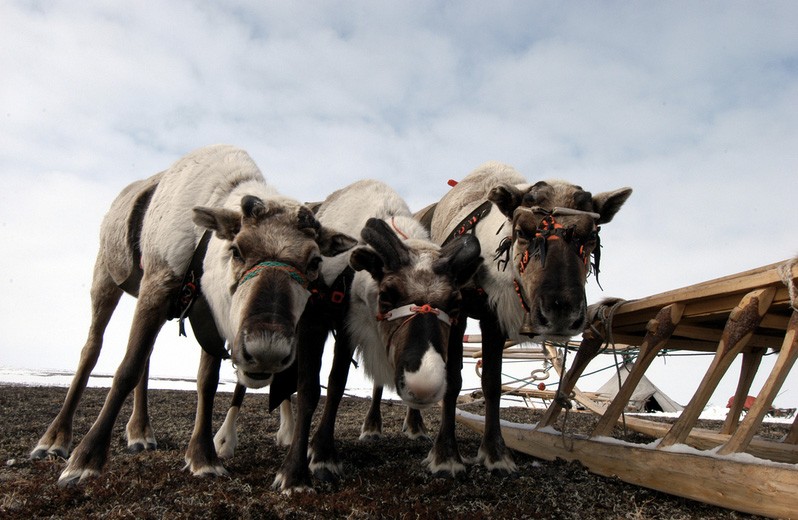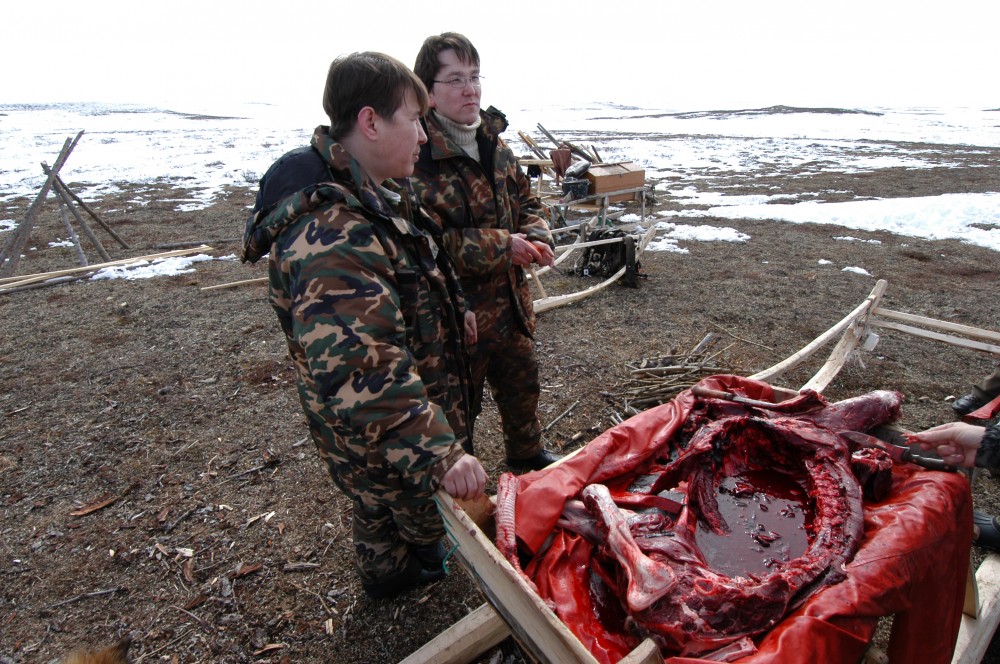Yamal-Nenets authorities plan to cull 250,000 reindeer
Pasture lands are insufficient and the risk of another anthrax outbreak is high, authorities in the Yamal-Nenets Autonomous Okrug say.

Spooked by the recent outbreak of anthrax, authorities in the northern Russian region of Yamal-Nenets Autonomous Okrug are planning to adopt a “road map” to drastically reduce the number of reindeer, the regional government said in a meeting this week.
The decision comes after more than 1,200 reindeer died and several people were hospitalized following a serious outbreak of anthrax this summer. The infection was spread by migrating reindeer.
“In my opinion, we should already have ready a battle plan by late September: who, where and how many reindeer are to be slaughtered, and by which herding crew,” regional Governor Dmitry Kobylin said this week.
Over a number of years, there has been a major increase in the number of Yamal-Nenets reindeer. There are now more than 700,000 animals in the region, an increase of about 200,000 animals in 15 years.
The head of the regional veterinary service said authorities have carried out a massive vaccination campaign to prevent another outbreak of disease. Special veterinary teams have spread out through the vast region and vaccinated 400,000 heads of reindeer, Andrey Listishenko said. Authorities hope to bring that number to 550,000 by the end of the year and then repeat the program on the yearly basis.
However, Yamal veterinarians are still urging local authorities to organize a massive cull to complement the vaccination program.
According to regional authorities, at least 250,000 animals need to be slaughtered this fall.
That, however, will be easier said than done. About 70 percent of the animals are privately-owned by local herders. And they will not be happy about a dramatic reduction of their stocks.
“The problem is that the private owners do not only refuse to vaccinate, but also slaughter the animals,” says the Yamal Rayon administration. “Therefore, we need to conduct preventive work with the Indigenous people,” authorities say in a press release.

Related stories from around the North:
Canada: Caribou numbers plummet in eastern Canada, Radio Canada International
Finland: Better times for reindeer herding, Yle News
Norway: 323 Norwegian reindeer killed by lightning strike ‘in the wrong place at the wrong time’: expert, Radio Canada International
Russia: Reindeer herders evacuated from anthrax zone in Russian Arctic, The Independent Barents Observer
Sweden: Bear hunt quota worries reindeer herders in Sweden’s Arctic, Radio Sweden
United States: Wildfires could threaten Arctic caribou herd’s winter habitat: study, Alaska Dispatch



